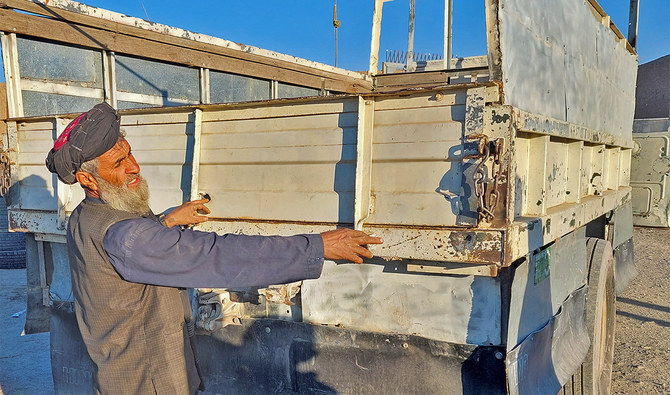QUETTA: Afghanistan’s Ministry of Defense on Thursday blamed Pakistani soldiers for shelling and triggering clashes at the Spin Boldak-Chaman border, saying that “negative actions, making excuses for war” is not in the interest of either of the two parties.
Pakistani officials, while requesting media not to be quoted, said one civilian was killed while several others were injured in 'indiscriminate firing' from Chaman in southwest Pakistan. Balochistan Home Minister Meer Zia ullah Langau said the recurrence of such events would hamper peace efforts.
“[The desire for] peace should not be mistaken for our weakness,” Langau told Independent Urdu. “Pakistan Army knows how to defend its border.”
He condemned the cross-border attack from Afghanistan and directed the deputy commissioner of Chaman to submit a report on the incident. Langau instructed the district administration to provide the necessary medical treatment to all injured in the attack.
Last week, the Pakistan Army blamed Afghan border forces for opening “unprovoked” fire into a border region between the two nations, killing six civilians and injuring 17.
“The Islamic Emirate of Afghanistan considers the dialogue as a reasonable way to solve any problem; negative actions and making excuses for war are not in the interest of any of the parties,” Afghanistan’s Defense Ministry said in a statement.
Pakistan has so far not responded to the Afghan defense ministry’s comments nor issued a statement regarding the incident.
Since the Taliban took over Afghanistan in 2021, clashes have taken place between its security forces and those of Pakistan, while militants have attacked Pakistani forces.
Trade between Pakistan and Afghanistan through the main Chaman crossing remained closed for 8 days in November after a Pakistani Frontier Corps (FC) paramilitary soldier was shot dead by an Afghan national on a gate at the border.
Earlier this month, Pakistan’s Embassy in Kabul came under gunfire in an attack that was later claimed by the Daesh group. Pakistani officials at the time had called the incident an attack on its envoy there. Islamabad also has said Afghanistan’s rulers are sheltering militants who carry out deadly attacks on its soil.
The latest violence follows a series of deadly incidents and attacks that have strained relations between Pakistan and Afghanistan’s Taliban rulers in recent months. It was not immediately clear what preceded the shots near Chaman, a key trade route between the two sides.
Afghanistan’s Taliban seized the Afghan capital of Kabul last year. Since then, the countries have traded fire mainly over lingering disputes about Pakistan’s construction of a fence along the Afghan border.
Earlier this month, Pakistan’s Embassy in Kabul came under gunfire in an attack that was later claimed by the Daesh group. Pakistani officials at the time had called the incident an attack on its envoy there. Islamabad also has said Afghanistan’s rulers are sheltering militants who carry out deadly attacks on its soil.












